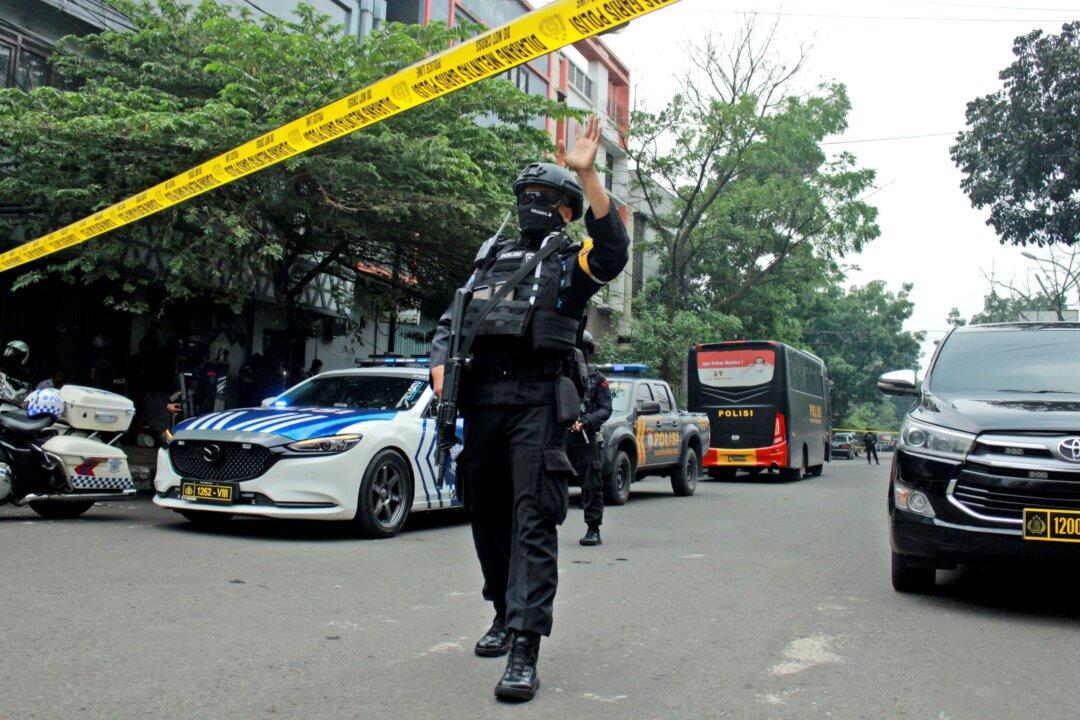BANDUNG, Indonesia—A terrorist and convicted bomb-maker who was released from prison last year blew himself up Wednesday at a police station on Indonesia’s main island of Java, killing an officer and wounding 11 people, officials said.
The attacker entered the Astana Anyar police station with a motorcycle and detonated one of two bombs he was carrying as police were lining up for a morning assembly, said Bandung city Police Chief Aswin Sipayung. The other explosive was defused.





